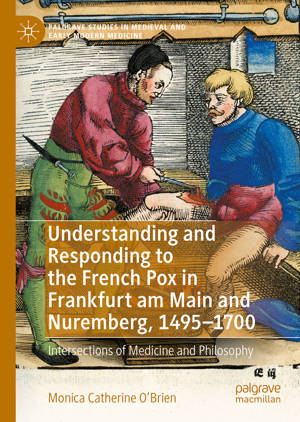
- Retrait gratuit dans votre magasin Club
- 7.000.000 titres dans notre catalogue
- Payer en toute sécurité
- Toujours un magasin près de chez vous
- Retrait gratuit dans votre magasin Club
- 7.000.0000 titres dans notre catalogue
- Payer en toute sécurité
- Toujours un magasin près de chez vous
Understanding and Responding to the French Pox in Frankfurt Am Main and Nuremberg, 1495-1700
Contagion, Practicality, and Morality
Monica Catherine O'BrienDescription
This book traces how city councils, medical practitioners and urban society developed their understandings of and responses to the 'French pox, ' a pandemic that swept through Europe during the winter of 1494-1495, and is now more commonly known as syphilis. Focusing on the disease in Frankfurt am Main and Nuremberg, two major cities in early modern Germany (1495-1700), and using a range of primary sources, including government records, medical publications, and writings of the sick, the author argues that the city councils' responses to the disease, the orders that they issued to control its spread and their provision of poor relief, were driven by three key factors: contagion, practicality (considerations on finances and resources), and morality. Their understandings of these elements led to a response that prioritised the provision of aid to support the sick as a way to control the disease, protect the economy and population, and satisfy moral beliefs. Moreover, the book demonstrates the significant and enduring influence of non-sexual contagion theories - the belief that the French pox spread through mechanisms like shared clothing, cutlery, and money - in law, medical thinking, and the self-portrayals of the sick. Making an important contribution to our understanding of early modern contagion theories and their role in municipal authorities' responses to disease, this timely book will provide new insights for early modern historians researching the social history of medicine and welfare.
Spécifications
Parties prenantes
- Auteur(s) :
- Editeur:
Contenu
- Nombre de pages :
- 300
- Langue:
- Anglais
- Collection :
Caractéristiques
- EAN:
- 9783031469244
- Date de parution :
- 08-08-25
- Format:
- Livre relié
- Format numérique:
- Genaaid
- Dimensions :
- 148 mm x 210 mm

Les avis
Nous publions uniquement les avis qui respectent les conditions requises. Consultez nos conditions pour les avis.






